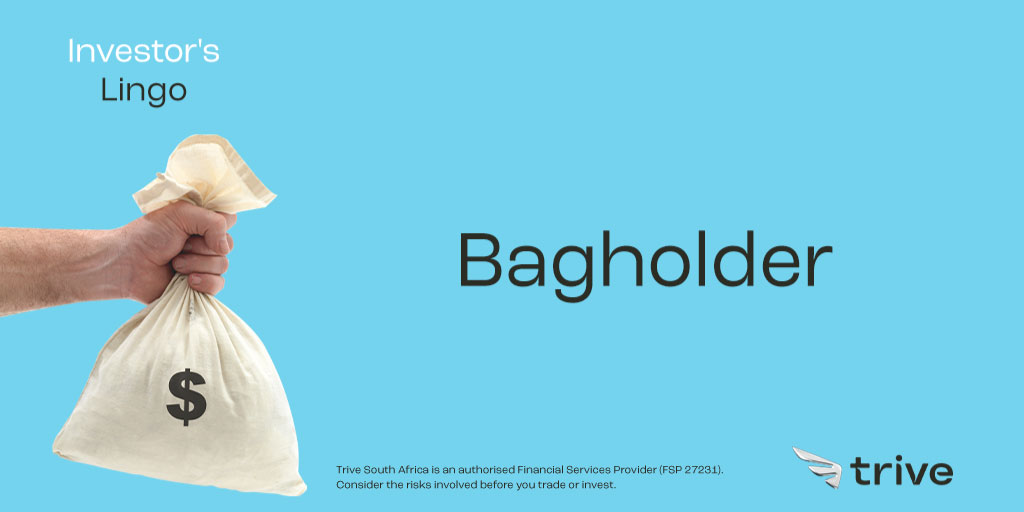
Have you ever bought a stock or an ETF you were convinced would soar, only to see its value plummet? If so, you’re not alone. Many investors find themselves in this situation, known as bagholders.
A bagholder is someone who holds onto a losing investment, hoping that it will eventually recover. They’re often characterized as stubborn or irrational, but the truth is that bag-holding is a complex psychological phenomenon.
In this blog post, we’ll explore the psychology of bag holding and offer tips for avoiding this common pitfall.
The phrase’ bag holding’ originates in 18th century Great Britain and has since become a popular term across the globe. In its original context, being left holding the bag referred to a person who was left with stolen goods and consequently faced blame from the authorities while the rest of the criminal mob managed to escape.
Disclaimer: Trive South Africa (Pty) Ltd, Registration number 2005/011130/07, and an Authorised Financial Services Provider in terms of the Financial Advisory and Intermediary Services Act 2002 (FSP No. 27231). Any analysis/data/opinion contained herein are for informational purposes only and should not be considered advice or a recommendation to invest in any security. The content herein was created using proprietary strategies based on parameters that may include price, time, economic events, liquidity, risk, and macro and cyclical analysis. Securities involve a degree of risk and are volatile instruments. Market and economic conditions are subject to sudden change, which may have a material impact on the outcome of financial instruments and may not be suitable for all investors. When trading or investing in securities or alternative products, the value of the product can increase or decrease meaning your investment can increase or decrease in value. Past performance is not an indication of future performance. Trive South Africa (Pty) Ltd, and its employees assume no liability for any loss or damage (direct, indirect, consequential, or inconsequential) that may be suffered from using or relying on the information contained herein. Please consider the risks involved before you trade or invest.




